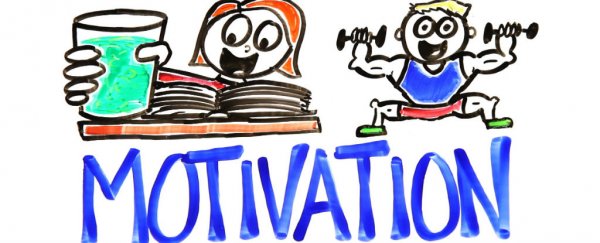
It's that time of year again when we're all thinking about the meaningful changes we can make to improve our lives. But the bad news is that by February, 45 percent of us will have quit our New Year's resolutions. What motivates us to keep up our new habits, whether it's going to the gym, not smoking, or getting to bed earlier, can be complicated, but research has shown that there are some measures we can take to give ourselves the best chance at succeeding.
A 2005 study by researchers at MIT found that when students were offered money as a motivator for certain tasks, higher amounts of cash really only made a difference to their performance when the task required little effort.
The first task required them to mash as any keys on a keyboard as they could in 4 minutes. In one group, the best performers got $300, and in another group, the best performers got $30. The researchers found that the overal performance of the $300 group was 95 percent higher than the $30 group, signifying that a solid amount of cash can be a really effective motivator.
But this isn't always the case, because in a second experiment, students were asked to perform a much more difficult task - they had to use their brains to solve a difficult maths problem. This time, the $300 group only performed 32 percent better than the $30 group, suggesting that higher amounts of money weren't enough to motivate them to do better at something hard.
This is known as the 'distraction effect', says the latest episode of AsapSCIENCE. "When we're given a task that requires problem solving, economic or emotional pressure can cause focus to shift to the motivator, and ultimately dividing your attention and producing performance," the video explains.
Basically, we humans find it difficult to focus on the task at hand because we can't stop thinking about the reward.
Interestingly, brain scans have shown that the brain activity of people who perform a task for fun - like exercising - is pretty much the same as the brain activity of people who do that same task for a reward. But if those who were offered a reward the first time get no reward the second time, scans show a decrease in activity in the anterior striatum and prefrontal areas of the brain, which have been linked to feelings of self-motivation.
This means that an offer of rewards can actually cancel out our natural sense of play, says the video, and that's really important.
While it might sound frivalous, play is actually the strongest motivator for sustained behavioural changes. So why do so many of us never use our gym memberships, and quit tennis lessons in the first week? It's simple: we're just choosing the wrong activities to achieve the wrong goals.
Watch AsapSCIENCE above to find out how to set the most effective, achieveable goals for yourself, and how to avoid the dreaded "What the hell" effect - the single worst thing that can happen to a New Year's resolution. And if that's not enough, how about a little bit of Shia?

